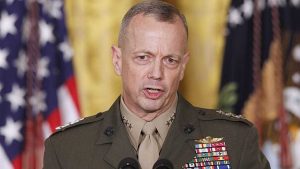Rwanda Faults Macron Over Goma Airport Claims

Rwanda’s foreign minister, Ambassador Olivier Nduhungirehe, has issued a strongly worded response to French President Emmanuel Macron, rejecting the assertion that M23 rebels and their allies are responsible for delays in reopening Goma International Airport.
Macron, speaking on Saturday, said he had observed that “the effort has not been made by the M23 and those who hold the airport” to allow flights to resume, and insisted that “all the administrative conditions have nevertheless been met by DR Congo.”
But in an extensive statement, Nduhungirehe said Macron’s remarks were inconsistent with the outcomes of the October 30 Humanitarian Conference on the Great Lakes Region in Paris.
“During the Humanitarian Conference… no consensus emerged among the participants regarding a peremptory decision for the immediate reopening of Goma Airport,” he said.
“President Emmanuel Macron himself indicated that the ‘conditions’ for reopening this airport would be negotiated in Doha.”
The Rwandan minister added that France’s own foreign minister, during the closing press conference, had also acknowledged that the airport matter would be addressed through Doha-based negotiations.
“Rwanda, which I represented in Paris, said nothing different,” he noted.
Nduhungirehe challenged the premise that Kinshasa’s administrative directives could determine the airport’s status, arguing that the Congolese government “does not physically hold this airport.”
“The reopening of an airport cannot depend on ‘administrative conditions’ put forward by the party to the conflict that does not physically hold this airport,” he said.
“This discussion must naturally involve the de facto authorities that control this area, if only for reasons of realism and efficiency.”
He also highlighted what he described as contradictory expectations between Paris and Kinshasa.
“The ‘administrative conditions’ laid down by Kinshasa… differ profoundly from those laid down by Paris,” he said, noting that Congo insists on full control by the Régie des Voies Aériennes, while France acknowledges the need for MONUSCO and AFC/M23 oversight in different perimeters.
The minister argued that the real barrier to reopening was ongoing military activity, accusing Kinshasa of daily bombardments targeting both M23 positions and Banyamulenge civilian areas.
“It is not the ‘administrative conditions’ artificially imposed by Kinshasa that can facilitate the reopening of Goma Airport,” he said.
“It is the effective cessation of daily bombings, carried out using Kinshasa’s fighter jets and attack drones.”
He reminded France that the first protocol of the Doha framework agreement, signed on November 15, is explicitly centred on ensuring humanitarian access that is “unhindered, safe, and sustainable.” Qatar, he added, should be trusted to guide the process to a conclusion.
“There you have it. The path forward is thus clearly mapped out,” Nduhungirehe said.
Macron’s comments, delivered during a press stop in France, put renewed attention on the standoff surrounding Goma Airport, which has been under M23 control since January after rebels captured Goma and seized the runway the following day.
Last week, the M23 movement dismissed Kinshasa’s preparations to reopen the airport as “illusory” and “entirely unacceptable,” insisting only the rebel administration has authority over the facility.
“The Kinshasa regime has neither the legitimacy nor the right to consider reopening airport infrastructure located in liberated territory,” said M23 spokesperson Lawrence Kanyuka.
Humanitarian agencies have repeatedly warned that the airport closure has crippled relief operations in North Kivu, cutting off the main logistical hub for supplies and peacekeeping operations.
Control of the airport remains a strategic centrepiece in the conflict. For Kinshasa, reopening the runway would symbolise restored sovereignty.
For M23, maintaining control reinforces its bargaining power and its expanding administrative presence in eastern DR Congo.
Since the fall of Goma, M23 has established what it describes as a functioning administrative structure across large swathes of territory rich in coltan, gold and other critical minerals.
The group claims to channel revenues into infrastructure and public services, though critics say its governance deepens an illicit wartime economy.
The dispute over the airport continues to test the fragile Qatar-led peace process. Both sides signed a framework agreement earlier this year, but implementation has been uneven, with ceasefire violations reported almost daily.
Nduhungirehe’s intervention signals growing frustration in Kigali over Western narratives surrounding the conflict and the airport.
The minister emphasised that any durable solution must adhere to the Doha framework, involve the actors currently controlling the ground, and first secure a credible halt to hostilities.
Macron, however, maintains that Paris views the delays as originating squarely from M23 and its allies.
“The effort has not been made,” he insisted, emphasising that the Congolese government had fulfilled its part.
With Kinshasa, Kigali, Paris and Doha all now publicly weighing in, the future of Goma Airport has become a focal point of regional and international diplomacy — and a litmus test for whether the peace process can shift from rhetoric to implementation.
By Nile Post.



